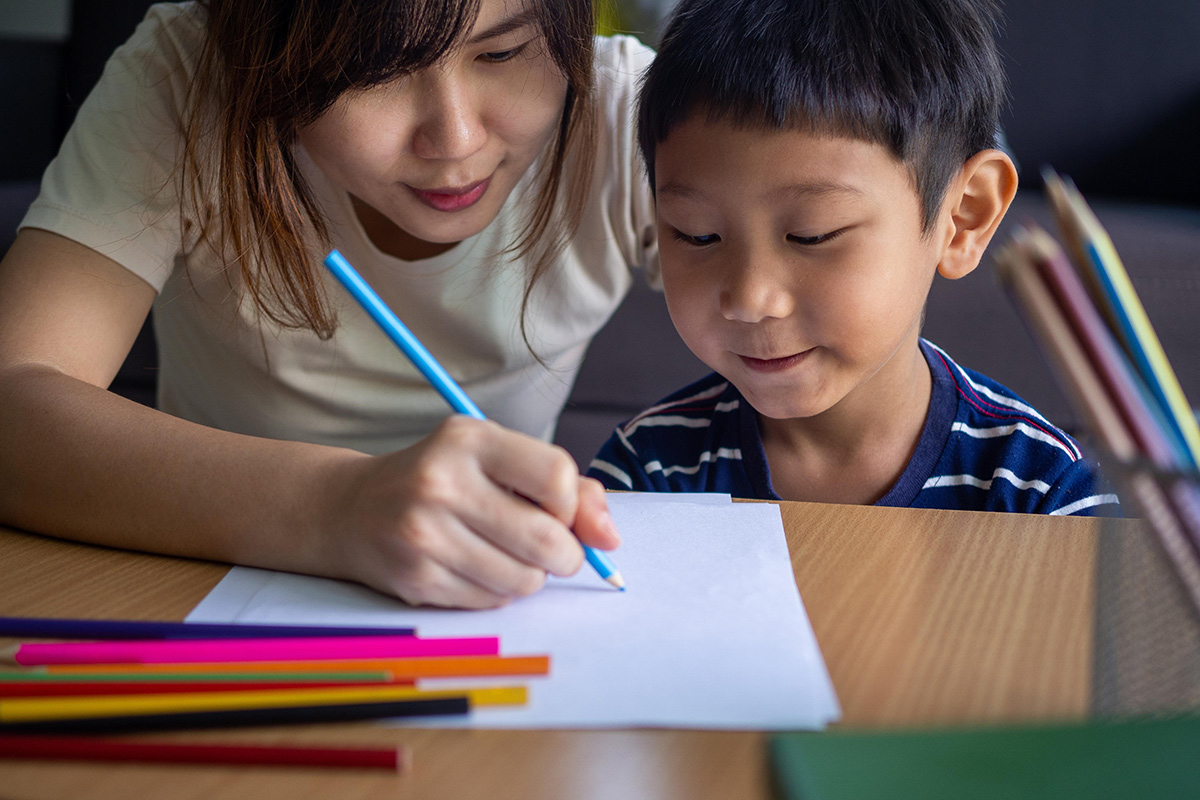8 Helpful Tips for Helping Your Special Needs Child with Their Homework
Aside from spending quality time with your child, the activity also gives you an idea of what they are learning at school.
Just like a typical needs child, a special needs child’s learning does not stop when they end their school day.
It often involves homework, which is just as vital for special needs students because it strengthens the lessons and skills they learned in school and encourages better parent-child relationships.
The activity need not be dreaded but enjoyable, as schoolwork for special needs students often involves more than just books or other conventional materials.
They may lace beads, work on a jigsaw puzzle, sort cards with different pictures, or further develop their self-help and life skill activities. Your child will often require your assistance to complete these tasks. Research suggests that parental involvement in providing structure, conducive environments, and rewards greatly encourage and motivate them.
Here are some benefits of organising your child’s schoolwork at home:
- Memory retention. Special needs children remember better if they practice an activity. For example, if your child learned a sequence of numbers in class, placing them at home could help them recall the arrangement better.
- Improved communication. Children tend to share what they learn in school with their parents while working with them. For instance, your child may demonstrate the sounds of animals during a homework session with you to let you know that they learned something interesting about animals that day.
- Learning responsibility. Homework is an opportunity for children to develop self-discipline and organisational skills and encourage them to improve themselves in the long term.
- Feedback opportunities. You could gather information on whether the lessons your child is learning in school are helpful to them. Your constructive response to their teachers would allow them to rectify the child’s lesson plans if necessary.

Although homework with a special needs child can be challenging and requires extra thought and attention, the activity can also be more rewarding for the both of you. Here are some helpful tips for you to keep your special needs child focused on their homework while making it also more enjoyable for them:
- Reduce distractions. Set up a good area with sufficient lighting. And remove gadgets like smartphones, tablets, and the TV, so your child is not distracted.
- Do light warm-up exercises. Before embarking on an activity, encourage some stretching, take a walk, water the plants, or sing songs. Like athletes, special needs children benefit from warm-ups too.
- Set a timetable. Set a fixed routine for your child to be more aware of the time for homework. Design the schedule with them; this may increase their tendency to adhere to it.
- Give them choices. Allow them to choose their activities without excluding the homework session.
- Set achievable tasks. Start with simple tasks if they express difficulty. For example, if they cannot count the objects on a worksheet, get them to count 1 to 10 with their fingers or count the number of chairs in the house.
- Take short breaks. Let your child rest for 10 to 15 minutes when they seem tired. Encourage them to walk around the house or play a soothing song to boost their mood.
- Reward them. Praise and high-five your child whenever they complete their homework. Set up a reward system that lets them win something for consistently completing a task. For example, you could take them to the zoo or treat them to their favourite meal if they achieve a certain number of good remarks from their teachers.
- Seek help. Teach your child to say, “Please help me”, when they encounter difficulties or challenges in their homework. Identify their challenges and problems and clarify the best technique to help them with their teachers.
For a child with special learning needs – and you as a parent – homework can transform from something unpleasant to hours of learning fun spent together.
At Taarana School, we focus on bringing learners, parents, and teachers together to enhance the learning experience through homework. In addition, parents are encouraged to work with their children on their home assignments to support their learning growth. Based on the Negotiated Education Plan (NEP), Taarana’s education programme comprises personalised goals and developmental milestones drawn up in consultation with parents.
By Dickson Yu
Pre-vocational Teacher, Taarana School

